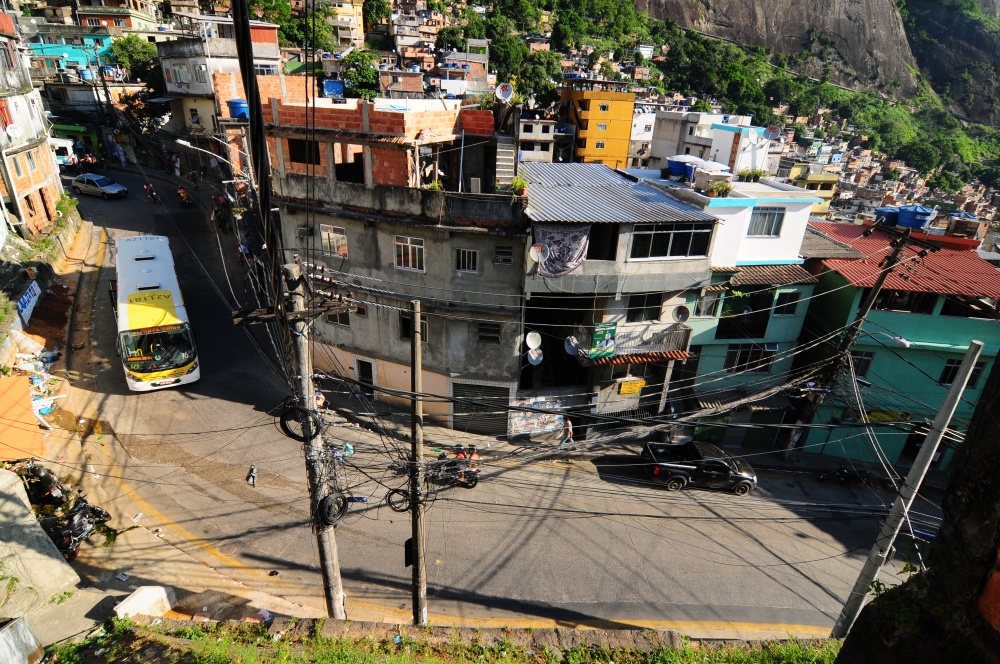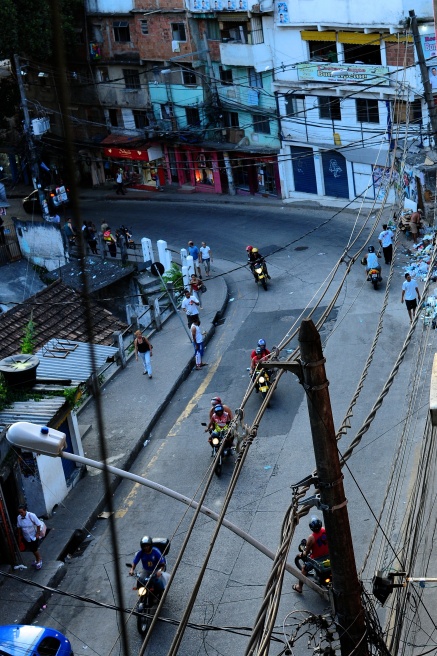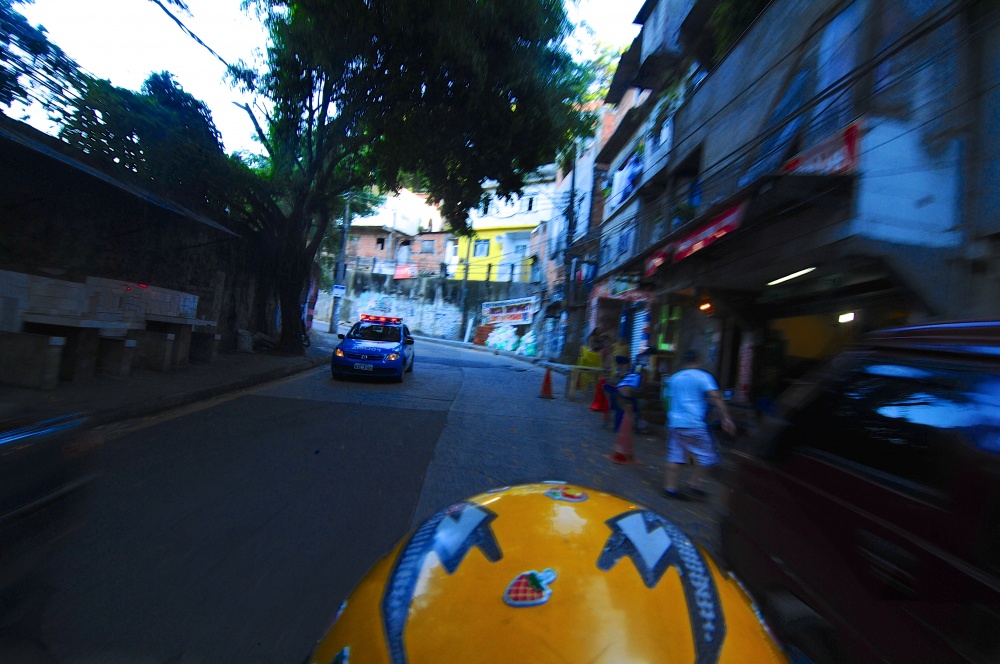The shantytowns that surround Rio de Janeiro have been built upon the sides of mountains, creating long and narrow streets and alleys leading to homes and businesses. Of the 300,000 residents in Rocinha, located between wealthy Leblon and the suburb Barra, many rely on motorcyle taxis to take them up and down the hills, some of which stretch more than three quarters of a mile and rise more than 2000m in elevation. The business of "motoboys" is common in the urban areas of Brazil as the motorcycles can cut through mind-numbing traffic jams with relative ease. In Rocinha, relying on motoboys to get to and from the lower parts of the favela where public transport takes people to work is essential to save time and energy. As an outgrowth of the difficulties of living in an urban favela, motoboys represent the dynamic life of a favela, some of which are simply areas of abject poverty, but many, like Rocinha, are communities bonded through common struggles including rampant drug businesses, gang warfare, frequent invasions by police, open sewage, uncollected garbage, and social marginalization. This project is an attempt to illustrate the dynamics of life in Rocinha from the perspective of a motoboy.
Daniel Hoffman
Photographer
Motoboys of Rocinha
Location: New York, NY
Nationality: USA




























